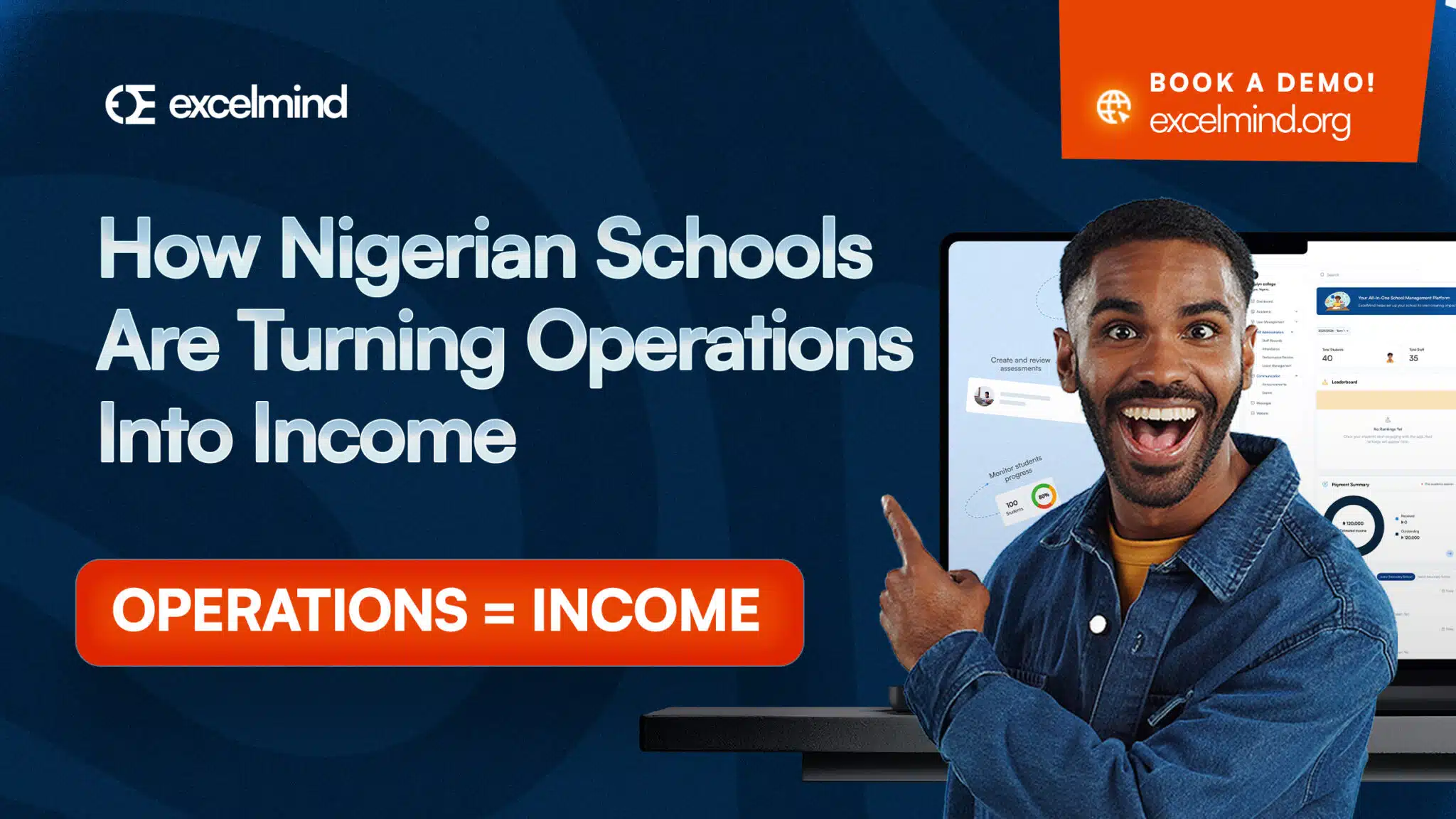Schools in Lagos and Ibadan are fixing simple admin problems and seeing real money come back
Schools don’t lose money in one big disaster. They lose it in tiny leaks every day. A parent calls to enroll their child, but no one calls back. A fee reminder going to the wrong phone number. A family wants to pay in installments, but the paperwork gets lost.
These small problems add up to big money losses. Now schools across Lagos and Ibadan are plugging these leaks and keeping more of the money they’ve already earned.
The Problem Every School Owner Knows
Ask any school proprietor about their biggest headache, and you’ll hear the same story. Half their time goes to chasing paperwork, following up on fees, and trying to keep track of who paid what and when.
Dr. Adunni Okafor runs a secondary school in Ibadan. She says it perfectly: “I became a school owner to teach children. Instead, I spend most of my day hunting down forms and calling parents about fees.”
Her story is everywhere. Schools lose families during enrollment because follow-up is slow. They lose money on services like transport and lunch because billing happens in different places. They lose trust with parents because communication is scattered and unreliable.
What’s Changing in Lagos and Ibadan
Something different is happening at schools across these cities. Owners are discovering that small fixes to everyday operations can bring back serious money, without raising fees or adding new programs.
The tool they’re using is called ExcelMind. But the real change isn’t about software. It’s about treating school operations like a business that deserves to run smoothly.
At one Lagos primary school, enrollment jumped 30% in four months. Not because of new marketing, but because they stopped losing families to slow follow-up. When a parent inquires about admission, someone calls back the same day. When documents are missing, parents get a clear message about what to submit and how.
Simple Changes, Real Results
The fixes are surprisingly basic. In Bodija, a school proprietor used to spend days each month trying to figure out who had paid fees and who hadn’t. Different services, tuition, transport, lunch lived in different notebooks. Some families got billed late. Others never got billed at all.
Now everything connects to one student record. Parents see all charges on one statement. Payment reminders go out automatically. The proprietor knows exactly who owes what, when they owe it, and whether they’ve been reminded.
The results? Families who used to take weeks to pay fees now pay within days of getting clear, polite reminders with working payment links.
Another school in Yaba discovered they had been losing money on extras uniform sales, after-school programs, field trips. These services were tracked separately from the main student files. Some got billed months late. Some never got billed at all.
When they connected everything to the same student record, per-student income increased by 20%. Same services, same prices, just better tracking and billing.
Why Operations Matter for Money
The connection between smooth operations and steady income isn’t obvious until you see it. When enrollment processes work properly, more families complete registration. When fee reminders are clear and timely, payments come faster. When parents receive regular updates about their children, they trust the school more and recommend it to friends.
Teachers notice the difference too. Less time on attendance sheets and notice distribution means more time teaching. Parents see the professionalism and stability, which supports renewals and referrals, the quiet engines of school growth.
How the System Actually Works
Behind the scenes, the approach is straightforward. ExcelMind keeps one record for each student and uses it for everything; admissions, fees, attendance, grades, and parent communication. The same information flows through every step, so there’s less retyping and fewer mistakes.
School heads can see exactly where families drop off during enrollment, which fees are collected late, and which messages haven’t been sent. Instead of guessing what’s wrong, they can see problems and fix them quickly.
Parents benefit too. Messages arrive when expected. Forms are simple and clear. Payment links actually work. If there are installment plans, families can see their payment schedule. When children are absent, parents get notified quickly.
Three Simple Routines That Work
Most schools start with three basic habits:
Daily admissions check: Look at incomplete applications and take the next step—call the family, send missing forms, or schedule a school visit.
Weekly fee review: See who has paid, who hasn’t, and send appropriate reminders. Handle payment plan requests and exceptions.
Regular parent updates: Send scheduled messages about school events, academic progress, and administrative matters so families know what to expect.
None of this is complicated. The value comes from doing it the same way, every week, without fail.
Real Numbers from Real Schools
The schools making these changes are seeing concrete results. Enrollment conversion rates improve by 25-40% when follow-up becomes systematic. Fee collection speeds up significantly when reminders are clear and payment is simple. Revenue from additional services increases when billing connects to student records instead of separate tracking systems.
One proprietor in Lagos puts it simply: “We’re not making more money because we’re charging more. We’re making more money because we’re not losing what we’ve already earned.”
Beyond the Money
The benefits extend beyond revenue. When operations run smoothly, school leaders can focus on education quality instead of administrative firefighting. Teachers spend more time teaching when attendance and communication systems work automatically. Parents develop stronger relationships with schools that communicate clearly and consistently.
Schools that master their operations also make better strategic decisions. With clear data about enrollment patterns, fee collection, and family engagement, proprietors can plan expansions, hire staff, and invest in facilities with confidence.
Why This Matters Now
Nigerian parents expect professional service from schools. Teachers need time to focus on instruction. School owners need predictable income to plan and invest. Good operations deliver all three.
When schools run systematically, everyone benefits. Families receive the service quality they expect. Teachers can concentrate on education instead of administration. Proprietors achieve the financial stability needed to grow and improve their institutions.
The transformation happening across Lagos and Ibadan demonstrates a simple truth: school financial health isn’t mysterious. It’s the result of ordinary processes done consistently, supported by a school management system that makes problems visible before they become expensive.
As more Nigerian schools adopt this operational approach, the entire education sector becomes more professional and reliable. For families seeking quality education and schools seeking sustainable growth, that evolution couldn’t come at a better time.
ExcelMind is developed by Thelix Holdings and serves schools across Nigeria through integrated operational management systems.





